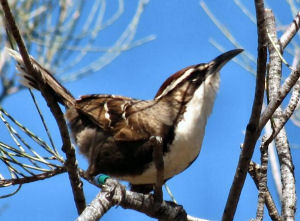
Getting a garden started on Mars might be a difficult task for even the most green-fingered astronauts. The stresses associated with space travel and hostile environments – extreme temperatures, drought, radiation and varying gravity – are not easily dealt with by traditional plant defenses.
But researchers from North Carolina State University believe they can transfer beneficial genetic characteristics from a sea-dwelling, single-celled organism called Pyrococcus furiosus into plants like tobacco and mustard weed. The P. furiosus microbe is known as an extremophile – an organism that survives, and thrives, in extreme environments. It can usually be found living around underwater sea volcanoes where temperatures reach more than 100 degrees Celsius.
The researchers wanted to see if it was feasible to insert a gene from an extremophile into a plant, and then see whether the gene would function in the plant in the same the way it does in the extremophile.
“The bottom line is that we were able to produce the P. furiosus superoxide reductase gene in a model plant cell line and to show that the enzyme has the same function and properties of the native P. furiosus enzyme,” said researcher Dr. Wendy Boss. “The fact that the plant cells would produce a protein with all the properties of the P. furiosusprotein opens new avenues for research in designing plants to survive and thrive in extreme conditions.”
While this gene transfer appears to have been successful, the researchers caution that there could be deleterious side-effects and that the research was still at a very early stage. “This is very fundamental research,” Boss said. “If we could add new genes to plants, we could potentially make the plants more resistant to extreme conditions such as drought and extreme temperatures that we have on Earth, but also to the extreme conditions that one might find on Mars.” With proof of concept established, the researchers are now planning to insert associated genes in the hope of providing even more extreme-temperature protection to plants.


















Comments are closed.